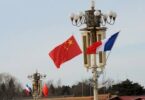Tom Harris
Every week seems to be worse for Humza Yousaf than the last one. The question is where this unprecedented catalogue of betrayals, deceptions and incompetence will lead his party. In the last few weeks we’ve seen Scottish Labour deal a significant blow to the nationalists in the Rutherglen by-election, placing a question mark over how many of its Westminster seats will remain in SNP hands after next year’s general election.
Shortly after that, we saw the first ever direct defection from the SNP to the Conservatives when East Kilbride MP, Dr Lisa Cameron, crossed the floor, throwing accusations of bullying at her former colleagues. But the first minister might now be justified in remembering such events with nostalgic fondness, given what has happened since.
At the weekend we witnessed yet another defection from SNP ranks, this time – and for the first time ever – a Member of the Scottish Parliament. Former minister and leadership contender, Ash Regan, announced she was resigning the party whip and joining Alba, the breakaway nationalist outfit founded by former first minister Alex Salmond. That was far more of a blow to Humza Yousaf than he tried to make out (Regan’s departure was “no great loss”, said a rather ungracious first minister). Alba is to the SNP what, in a previous era, Ukip was to the Conservative Party: a troublesome and more radical splinter group whose claims to be the true voice of the movement may hold some appeal to activists frustrated with the current government’s failings. In the same weekend that Regan became Alba’s first ever MSP, the media was catching up with concerns expressed at the UK Covid inquiry that the Scottish Government was reneging on its previous undertakings to co-operate with its investigation into how the pandemic was handled across Britain.
Nicola Sturgeon promised, at various times in her leadership, to lead the most open and transparent of administrations. Yet now we are presented with a bona fide scandal: none of the WhatsApp messages exchanged by Scottish ministers dealing with the crisis has been made available to the inquiry, despite repeated requests. In fact, it has emerged that senior ministers and health officials are likely to have deleted such messages.
The irony is that nationalist supporters have been among the first to criticise Boris Johnson for his own failure to provide certain WhatsApp messages to the inquiry. Some of them have even taken to Twitter/X to justify the Scottish Government’s actions (or inactions) on the basis that Johnson did the same. The circular and self-damning logic is too obvious to have to point out. Meanwhile, the Scottish public are getting yet another glimpse of the hypocrisy and deception which continues to underpin the SNP and undermine Sturgeon’s own legacy and reputation.
And finally, like the couple of minutes that used to round off the evening news bulletins with whimsical stories about talking dogs and skateboarding ducks, we had the Scottish Greens. The party that sits in government in Edinburgh as part of a parliamentary agreement with the SNP announced via its co-leader Lorna Slater (because this is the Scottish Greens, so of course they have co-leaders) that it may well vote for Scottish Labour to lead the next Scottish Government after the 2026 Holyrood elections. Talk about a kick in the teeth for their government colleagues. It was a bold move by Lorna Slater, the minister whose reputation for competence has been sealed by her handling of the Deposit Return Scheme (scrapped at huge cost) and Marine Protected Areas (scrapped after outrage from the fishing industry).
The Greens have long benefited by being the pilot fish to the SNP’s shark, attracting the second (regional list) votes of nationalist voters who recognise that if the SNP are successful at a constituency level, then a second vote for them in the proportional lists would be wasted. So many of them opt for the independence-supporting Greens instead which, in 2021, resulted in the party winning eight seats. Her comments made few waves but it could turn out to be as significant for the SNP in the long term as those other, more dramatic, developments of the last few days.
If even the Greens are starting to recognise that independence is no longer the priority of most Scots, then the salience of that issue might no longer be the drag on Labour support that it has been for the last eight years. And that would be bad news indeed for Mr Yousaf. Further, we should bear in mind that overshadowing all this, Scotland is still waiting for the other shoe to drop – an announcement as to whether charges will be brought as part of the police investigation into SNP finances, an investigation that has already entailed the arrest (and subsequent release without charge) of Nicola Sturgeon, her husband, Peter Murrell, and the party’s former treasurer. Ms Sturgeon and the others deny all wrongdoing.
It’s almost enough to make one feel sorry for Yousaf. Almost – until we are reminded that he is one of those ministers named by Jamie Dawson KC, counsel to the Covid-19 Inquiry, as having failed to provide the vital WhatsApp messages that the inquiry and bereaved relatives have the right to view. Things could get better for the first minister, of course. He may defy his critics and steer his ship back onto an election-winning course that attracts the confidence of the nation. But at the moment such a prospect looks fanciful. The rot has set in, and every week looks set to make matters worse for Yousaf and his party.







